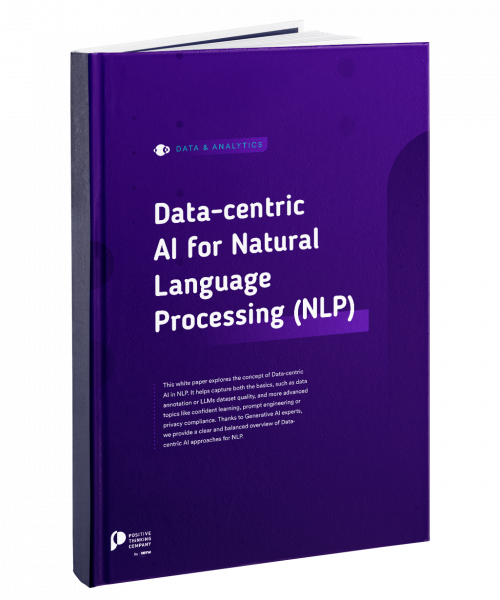Why would data analytics be the privilege of large companies? As an SME, you now have data assets that can support decision-making and improve your competitivity. Many of you are not yet able to implement relevent processes. What is it that blocks you? Here are five of the most common facts we observe.
1. You underestimate the volume of your data
Big Data is a broad term mainly characterized by the volume of the data to be processed. However, data intelligence is absolutely not limited to that. As a matter of fact, you can easily and quickly gain insights from small datasets that are relevant to your business. Here, it is not how much your hard disk space is filled with data that matters, but rather how you treat this data you already possess: start by studying carefully what your raw data consists of and you should already be able to identify particular points of interest.
2. You are wasting time
Deep down, you know that you have the resources to optimize a process or to improve your customer knowledge. But are your efforts in vain? Data analytics can be a frustrating process in many ways, especially if it must be repeated multiple times before offering any relevant insight. Here, it is a matter of governance: you must provide your data with a framework that allows you to prepare it for a better use and, more importantly, to reuse them with ease and efficiency through dedicated powerful workflows. As developments progress, this framework will guarantee quality, security and proper data management.
3. You have a lack of agility
Is it up to the artisan who builds the house to draw the plans? Today, it seems difficult not to involve end users in defining needs or integrating data analytics tools. With effective governance, you can take it one step further by developing a true self-service analytics approach. This enables businessses to autonomously consume the data they are best qualified to use. User experience (UX) is here a key component for a full adoption by the different teams of your company.
4. Your analytics skills are limited
Advanced Analytics is no longer the responsibility of Data Scientists. Many business applications now have analytics capabilities available to Analysts from the business lines. Assisted by automated modeling tools and knowledgeable in statistics, Analysts extract the value of data directly from their knowledge of the business challenges On the other hand, Data Scientists focus on more complex projects. According to Gartner, this growing trend has resulted in a new type of profile: the Citizen Data Scientist, a specific profile able to perform real predictive and prescriptive analytics without specific knowledge of Machine Learning.
5. You already know how to visualize and share your insights
The growing popularity of data visualization tools such as Qlik, Tableau or Power BI clearly shows that the challenge is not inevitably technological: it mainly consists in supporting the business users that already visualize and interpret data to improve their skills every day. Data storytelling methods, for example, encourage the description of data in a narrative way in order to make the analytics process more natural, to strengthen engagement and to allow relevant conclusions. Ideal for creative users!
In conclusion
If you recognize yourself in any of the five observations listed above, the good news is that the picture is not so bad! The first step, which consists in becoming aware of the value of your data, has already been largely achieved. The objective is thus to increase your maturity with your data. Dedicated accompaniement is key, and it start with a focus on clarifying the company’s business issues in order to quickly provide the organization with the required tools and methods.










